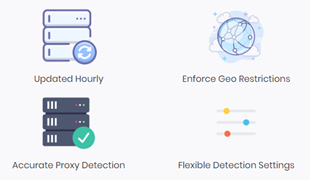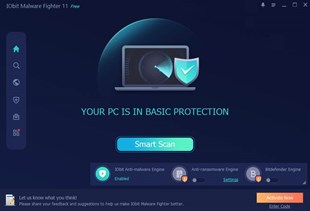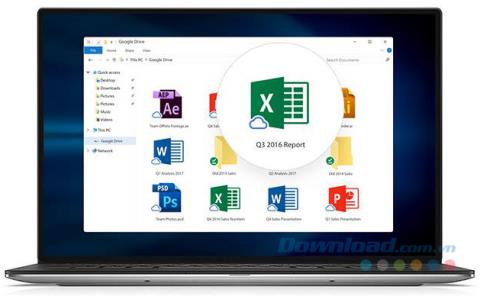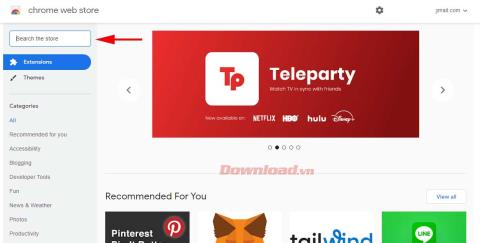Life360 is one of the most popular location services ever, and many famous brands integrate it into their GPS tracking systems. However, the worldwide integration of this app does not mean that it is without flaws.

Recently, doubts began to be raised about whether this app brings more harm than good to the ones being monitored. Most teens and children claim that Life360 has ruined their social lives and invaded their privacy.
In this article, we’ll explain the dark side of this app.
Is Life360 an Invasion of Privacy?
To some extent, yes. This app has gone too far.
Parents started to rely too much on some of Life360’s features, such as driving habits and personalized places.
This sense of constant “supervision” creates aversion in children who think they are being monitored and contributes to certain psychological problems.
Life 360 Key Features
To better understand what problems Life360 causes and its biggest disadvantages, we must first understand this app’s concept and key features.
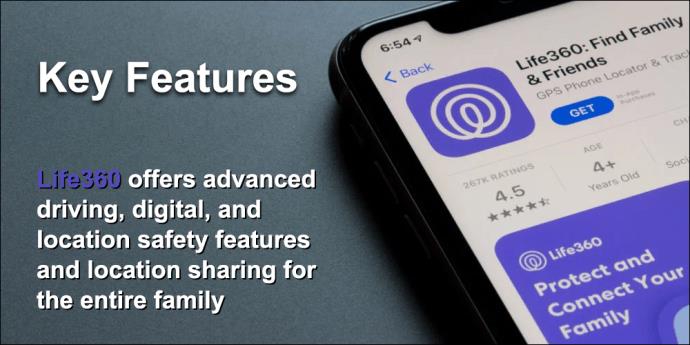
Driving Habits
This feature gives parents full insight into their family member’s driving habits. They can check their speed and phone usage while in the car.
They also have a complete weekly overview of their driving behavior at the end of the week.
Personalized Places
Parents can mark certain places (home, office, school, gym) and get a notification as soon as their family member enters or leaves the building.
This feature is the most popular for checking whether children arrive at school safely.
Private Circle
This feature allows users to create family-member circles and track their real-time location. It’s useful when you’re planning a get-together and want to see where everybody is.
Route History
This feature allows the user to check someone’s past trips and get an insight into their route map details.
Instant Access
These are one-tap options to ask for help and navigate your family member.
Battery Monitoring
The last feature involves checking your family member’s battery life. This way, you can alert them to charge their phones and that reaching out is impossible because their battery is low.
Is Life360 Suffocating for Children?
In short, yes.
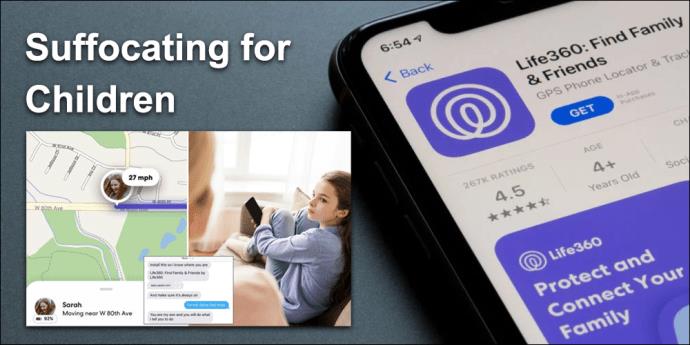
Although the primary intention of tracking apps is safety, this is slowly becoming an invasion of their privacy.
Instead of feeling cared for, children might believe their parents don’t trust them. This turns into repulsion in children. Location tracking can significantly damage this parent-child connection, especially in hormone-fueled teenage years.
Research has shown that tracking adolescents’ location increases the possibility of having higher levels of conflict at home. They feel suffocated by their parents, creating an unhealthy distance.
Can Life360 Contribute to Developing Teen Anxiety?
Absolutely.
The reality of technology is not as fabulous as it may seem.
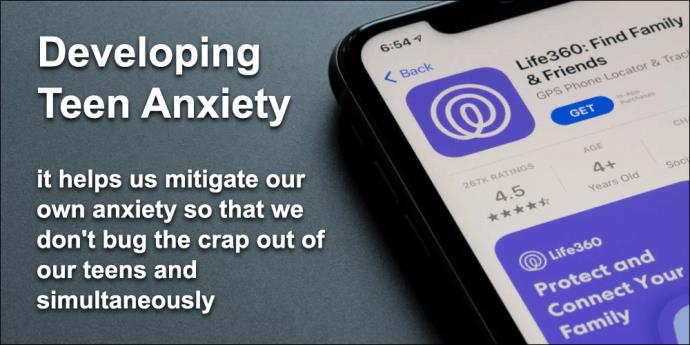
Teenagers are extremely sensitive to changes or situations they consider constricting or against their world view. A feeling of being watched or monitored can cause anxiety in anyone, especially in people already experiencing significant biological and lifestyle changes.
Teen anxiety manifests itself in different ways. This can affect your child’s daily behavior, concentration, irritability, conflict, and many more.
The Adverse Effects of Life360
Although technology has shaped our lives, in some moments, it can be suffocating.
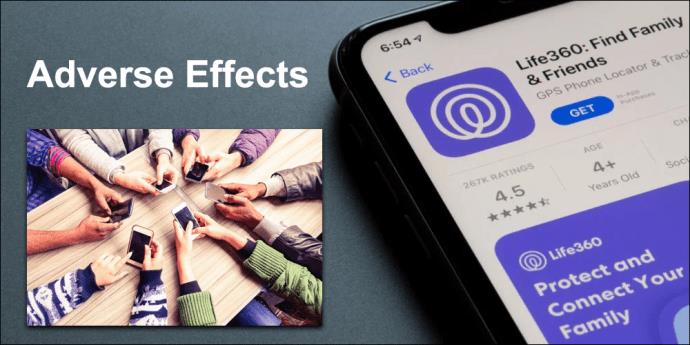
For example, parents who are using Life360 to monitor their college kids’ lives are taking it too seriously. They are becoming more controlling, which is turning into emotional abuse.
The kids aren’t happy either, and they’re looking for ways to trick their parents. They’re learning to freeze their location on this app so that their parents won’t bother them anymore.
If you’re trying to control where your children go and what they do with their time, you might be disappointed or get the opposite effect.
When Should You Use Life360?
So far, we’ve had the opportunity to go through the negative sides of Life360 and what consequences it can have for children who are being “monitored.”
When is it acceptable to use this app?
According to parents’ statements, there is an “acceptable” time when you should use this app and not receive any backlash for it. The appropriate time period for using Life360 is when you have young kids.
Many parents have praised this app for helping them monitor their kids’ playtime, school arrival, and more. When they’re still young, they don’t object to it since it’s what they’re used to already and likely won’t care.
Their primary focus is on doing whatever they’re doing at the moment. This gives parents a certain amount of “relief” in the sense that they won’t come home with an attitude about being “monitored.”
Is Life360 Legit?
Yes. Life360 is a legit service. It is also free if you don’t need access to premium services. It’s available on Windows, Mac, iOS, and Android devices.
FAQs
Does Life360 alert you when someone checks your location?
No. Life360 will not notify you when someone checks your location.
How does Life360 know when you stop driving?
Within the app, there’s a Drive Detection Feature that alerts the user when someone stops driving. It analyzes the driver’s phone activity and speed.
Is Life360 always accurate?
Despite being considered a technological breakthrough, Life360 is not 100% accurate. For example, the location of some members of your “circle” may not be updated when you open the app.
Does Life360 use a lot of data?
It depends on how much time you spend on the app. On average, Life360 can use between 8 and 60MB per month. The strain on your cellular data can be reduced if you connect to your Wi-Fi.
Can someone pause their location on Life360?
Yes, they can. Users will get a “Location/GPS turned off” or “No network” alert on their phones. To see their location again, they must turn on their app and turn on the location.
Tot Up
So far, you’ve had the chance to learn more about how tracking apps like Life360 influence the lives of children and their parents. Over-controlling parents who spend 24/7 on this app monitoring their children cause more harm than good. Children and young adults can look for ways to freeze their location and avoid being “emotionally abused,” which strains their relationships with their parents and can create extreme revulsion.
Parents should learn to trust their children and take these apps as they are – just online tools.
Have you ever used Life360? What is your experience with this app? Make sure to let us know in the comments below.
